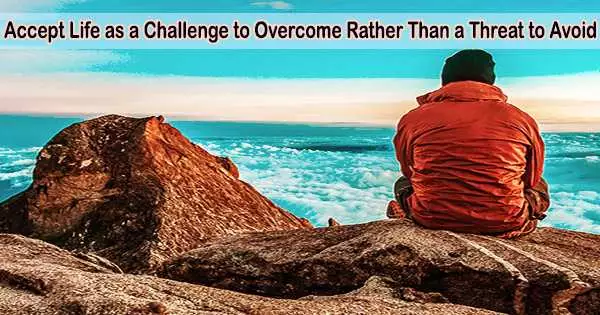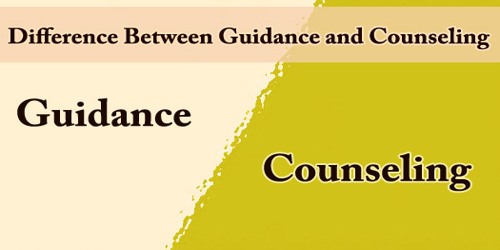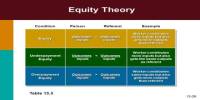Because of how our brains have developed, we have the ability to fight our most fundamental instincts (though not easily), which distinguishes us from our prehistoric ancestors and makes us more able to respond to life as a challenge. The challenge response’s primary objective is to cause us to pause before acting on impulse, deactivate the amygdala, activate the cerebral cortex, and consider how we may act on and respond to our lives in healthy and constructive ways. More importantly, we now strive not only to survive, but to thrive in our lives: find meaning, pursue toward dearly held goals, experience joy, and connect deeply with others.
This challenge attitude goes farther than merely putting you in a physical and mental state where you can focus all of your efforts on eliminating or at the very least minimizing the threat you might feel in your life. Living your life driven by challenge allows you to view it as filled with opportunities to be embraced rather than potential misfortunes to recoil from.
You are focused on living your life with commitment, confidence, and drive while eliminating unproductive thoughts and feelings like doubt, worry, or fear when you have this challenge perspective.
Challenge is associated with welcoming all that life has to offer and immersing yourself “hip deep” in the experiences it presents to you (both affirming and difficult), rather than obsessing about possible harm that might result. This “can do” (rather than “what if”) state acts as the foundation for an opportunity psychology by creating a positive lens through which you view and experience your life.
You experience a very different emotional response from the threat reaction than the challenge perspective. Challenge emotions include optimism, pride, inspiration, and equanimity in contrast to the unpleasant, negative, and counterproductive feelings that make up the danger reaction (such as fear, annoyance, rage, and despair). These far happier and more helpful feelings encourage you to embrace your life rather than run away from it or sabotage it.
These emotions then trigger a physiological state that makes you more capable of coping successfully with the complexity of modern life. The challenge approach makes you feel physiologically at ease and in control of your physiology, as opposed to the dramatic and uncomfortable physical changes linked to the threat reaction (fight or flight). You may feel relaxed yet energized or, perhaps, even fired up to take on your life.
This calmer condition allows your mind to be clear, open, and intentional. You will be confident that you have the capabilities to surmount whatever life presents to you. Your pre-frontal cortex can concentrate on what’s important in your life by remaining relatively calm in the tumultuous environment that can be modern life: analyzing potential options, connecting with your values and priorities, setting goals, making wise decisions, plotting appropriate courses of action, and pursuing them with vigor that wouldn’t be possible in the frenzied state of the threat reaction.
Responding With Challenge
You must accept and ingrain certain beliefs about yourself if you want to completely change from seeing your life as a threat to your life as a challenge. When faced with a challenging life scenario, these beliefs work to suppress the threat instinct. By their very nature, these perspectives remove the deafening alarm of threat think Chicken Little, “the sky is falling” and replace it with a battle cry of a challenge think Paul Revere, “the British opportunities are coming.”
I (Jim Taylor Ph.D.) have identified five such beliefs that lay this foundation. One thing to note about these beliefs is that they build on one another from the first to the last.
I am competent. Feeling out of control and in over your head is one of the most dangerous parts of life. In other words, having the impression that you lack the capacity to at least survive, let alone thrive, in life. When you have a fundamental faith in your capabilities, you believe that you have what it takes to surmount anything that comes your way. This confidence in your inherent competence serves as both a foundation on which you can construct your life and as a source of rocket fuel to advance you in the path you desire for your life. This sense of competence can be both specific and general.
In an ideal world, you would possess the specific capabilities to deal directly with every aspect of your life. For example, it would be great if you were a lawyer when faced with a legal issue or a physician when confronted with a health problem.
Unfortunately, specific competencies rarely align with the many complexities of life that are found in the 21st century. In that case, having a general sense of competence (“I can handle this”) provides a feeling of confidence and comfort that will allow you to constructively navigate your life and whatever it presents to you. When you have a strong sense of self-confidence, you eliminate the potentially serious threat that is frequently connected to the idea that you can’t manage your life. Then you may deliberately and calmly concentrate on marshaling your resources to guide your life in the direction you want it to go.
I am responsible for myself. This belief in ownership of yourself (which starts with a sense of competence) results in your ability to see that how you respond to your life what you think, feel, and do is up to you and will frequently determine how your life impacts you. It helps you avoid adopting a victim mindset that makes you feel powerless and helpless and leads you to live a passive or reactive life.
Because of this, even though you might not have any influence over the circumstances that develop in your life, you think that you have some control over how life impacts you. As a result, you accept accountability for your actions, turn within for support and direction, and make your own decisions about how to proceed with your life.
I am determined. One of the most common reactions, when confronted by a difficult situation that presents itself in life, is to surrender to what might seem inevitable. But what will motivate you to persevere in the face of the potentially enormous barriers that life frequently places in your path are a steely resolve and an unflinching determination. The ability to continue is frequently what makes the difference between people who survive and even succeed in life. This perseverance takes its strength from the two earlier convictions because, if you accept responsibility for your life and consider yourself as competent, you will believe that, with enough persistence, you can overcome any obstacle life throws your way. With these convictions, you will channel and concentrate your efforts with all of your might toward a successful resolution of life events, regardless of potential roadblocks and the unpredictability of the result.
I can handle adversiy. By its very nature, life is rife with adversity; whether physical, psychological, financial, interpersonal, or what have you. Your belief that you can overcome whatever adversity you are faced with is essential to seeing it as a challenge rather than falling victim to your threat instinct.
In addition to the previous beliefs that lay the foundation for this belief, you can develop an “I can handle adversity” belief in several ways. First, you can cultivate this belief by reflecting on past experiences in which you’ve marshaled your resources and succeeded in overcoming adversity in your life. These experiences demonstrate to you that you were capable of overcoming past life difficulties and you’ll have what it takes this time. Second, because it’s unrealistic to think that you will have previous experience specific to every life situation you will face, you’ll need to tap into your general knowledge, abilities, and tools to handle new adversity in your life.
I can effect change. The basic yet empowering idea that you may initiate positive change in response to anything that life throws at you regardless of its apparent impossibility due to its magnitude or force is rooted in the aforementioned four ideas. Realistically, due to the intangible, complex, and oft-times incomprehensible nature of life today, the change that you seek is often outside of your control.
So, depending on the type of life situation you are in, when I (Jim Taylor Ph.D.) speak of change, I am referring to not only the external aspects of your life that impact you, but, just as importantly, your beliefs about your ability to choose the way you think, feel, and act in response. Your experience, knowledge, skills, abilities, resources, and support that you bring to bear as you confront your life head-on give rise to the belief that you can bring about change.
In sum, when you embrace these five fundamental beliefs, you create in yourself a foundation that enables you to live your life with confidence, courage, and determination, and without excessive doubt, worry, or fear. This foundation allows you to let go of your primitive instincts, disconnect from your amygdala, fully engage your evolved brain, and access the entire arsenal of capabilities that you possess.
In turn, you’ll be ready to handle anything life throws at you constructively, even in the worst circumstances. By embracing these five ideas, you finally make the shift from a threat reaction to a challenge response and move a step closer to seeing life as a series of opportunities to design the life you want.
















